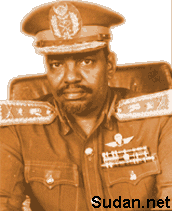 South Africa is launching clinical trials of the first AIDS vaccines created by a developing country, a feat by scientists who forged ahead even when some of their political leaders shocked the world with unscientific pronouncements about the disease. South Africa is launching clinical trials of the first AIDS vaccines created by a developing country, a feat by scientists who forged ahead even when some of their political leaders shocked the world with unscientific pronouncements about the disease.
Probably something like an injection of pureed monkey brains.
Trials to test the safety in humans of the vaccines begin this month on 36 healthy volunteers, Anthony Mbewu, president of South Africa's government-supported Medical Research Council, said in an interview Sunday. Mbewu's respected organization shepherded the project.
And so far none of them have contracted AIDS. They have, however, taken to swinging from vine to vine to get home and to eating lots of bananas. Doctors belive they will be fine because they are still opening the bananas from the wrong end.
A trial of 12 volunteers in the United States began earlier this year.
Mbewu said the vaccine was designed at the University of Cape Town with technical help from the U.S. National Institutes of Health, which also manufactured the vaccine. Dr. Anthony Fauci, director of the U.S. National Institute of Allergy and Infectious Disease and a leading AIDS researcher, was in South Africa for the launch.
"I was just kidding but they took me seriously!"
During nearly 10 years of denial and neglect, South Africa developed a staggering AIDS crisis. Around 5.2 million South Africans were living with HIV last year--the highest number of any country in the world. Young women are hardest hit, with one-third of those aged 20 to 34 infected with the virus.
In 1999, the ministries of health and of science and technology founded the vaccine initiative and poured 250 million rand into it over nearly 10 years. Some 250 scientists and technicians worked on the project, along the way gaining scores of doctorates and producing work for professional publications as well as a model for continued biotechnology development in South Africa.
The government decided it was important to develop a vaccine specifically for the HIV subtype C strain that is prevalent in southern Africa "and to ensure that once developed, it would be available at an affordable price," Mbewu said. "We have the biggest problem" in the world, Mbewu said on the sidelines of an international AIDS conference in Cape Town. "Every emerging country is trying, wants to develop their own capacity to design and develop vaccines--Brazil, Korea," Mbewu said. But the South Africans are the first to reach the clinical trial stage, though years of testing will be needed.
And lots more bananas.
The field of AIDS vaccine research is so filled with disappointments some activists are questioning the wisdom of continuing such expensive investments, saying the money might be better spent on prevention and education. Mbewu said the crisis in South Africa more than justifies the expenditure. "With 5.2 million already infected and with hundreds getting infected every day despite all the condom distribution and behavioral education programs, we know that a vaccine really is what we need," he said.
And he said there are many other benefits. The cadre of South African scientists now able to develop complex technological vaccines for HIV can use that same expertise to fight tuberculosis and avian flu. "When the next influenza pandemic hits the world, every country will be scrambling to develop a vaccine ... so it is important that countries like South Africa have the technology and capacity to develop vaccines and the industry to manufacture them," Mbewu said.
South Africa was the site of the biggest setback to AIDS vaccine research, when the most promising vaccine ever, produced by Merck & Co. and tested in a study in South Africa in 2007, found that people who got the vaccine were more likely to contract HIV than those who did not.
Gee. Thought they were immune, did they? There is more than one strain of AIDS, guys. And gals.
In the 1990s, South Africa's then-President Thabo Mbeki denied the link between HIV and AIDS, and his health minister, Manto Tshabalala-Msimang, mistrusted conventional anti-AIDS drugs and made the country a laughing stock trying to promote beets and lemon as AIDS remedies.
At the conference opening, co-chairman Dr. Hoosen Jerry Coovadia reminded the thousands of scientists, researchers, doctors and activists of the importance the international scientific community had made to South Africa's progress in mounting an effective AIDS response in 2000, when the largest international AIDS meeting was held in the South African port city of Durban. Some 5,000 scientists signed the Durban declaration that affirmed the human immunodeficiency virus was the cause of AIDS.
Coovadia, who is professor in HIV/AIDS research at the University of Natal-Durban, said today the international science community must ensure that governments keep their commitment to ensuring universal access to life-giving anti-retroviral drugs.
$$$ talks.
It was the Durban conference that opened the way for the rollout of ARV therapy in poor and middle-income countries where today more than 3 million people are receiving treatment, said Dr. Julio Montaner, president of the International AIDS Society. He said those gains are threatened today by warnings that the global financial crisis must affect supplies of ARVs.
Montaner said it was extraordinary that the United States is the only member of the G8 conference of rich developing countries that has paid up what it promised to fight AIDS.
Extraordinary? How so? It's exactly what I expected would happen.
"We must hold the G8 leaders accountable for their failure to deliver on their promises," Montaner said.
How about people in the developing nations start by keeping their pants zipped up while not at home?
"A retrenchment now would be catastrophic for the nearly 4 million people who are already on treatment in resource-limited countries" and some 7 million others waiting for treatment.
"AIDS is not in recession!" South African AIDS activist Vusikeya Dubula said to cheers from the conference. "
Ka-ching!
In all seriousness, thanks SA for taking this seriously. |
 Like nobody could see this coming....
Like nobody could see this coming....
 [Iran Press TV] Former South African
[Iran Press TV] Former South African  [Al Arabiya] Sudanese President Omar al-Bashir said on Tuesday he would not accept an alternative to unity despite his commitment to a peace deal with the south that provides for an independence referendum.
[Al Arabiya] Sudanese President Omar al-Bashir said on Tuesday he would not accept an alternative to unity despite his commitment to a peace deal with the south that provides for an independence referendum. South Africa is launching clinical trials of the first AIDS vaccines created by a developing country, a feat by scientists who forged ahead even when some of their political leaders shocked the world with unscientific pronouncements about the disease.
South Africa is launching clinical trials of the first AIDS vaccines created by a developing country, a feat by scientists who forged ahead even when some of their political leaders shocked the world with unscientific pronouncements about the disease.  South African
South African